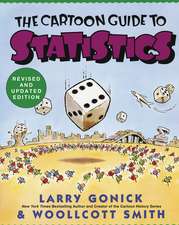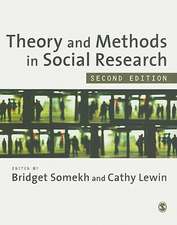Participatory Action Research: SAGE Focus Editions, cartea 123
Autor William Foote Whyteen Limba Engleză Paperback – 23 ian 1991
Din seria SAGE Focus Editions
-
 Preț: 307.80 lei
Preț: 307.80 lei - 18%
 Preț: 713.88 lei
Preț: 713.88 lei - 18%
 Preț: 716.73 lei
Preț: 716.73 lei - 18%
 Preț: 720.05 lei
Preț: 720.05 lei - 15%
 Preț: 555.61 lei
Preț: 555.61 lei - 18%
 Preț: 716.73 lei
Preț: 716.73 lei -
 Preț: 293.36 lei
Preț: 293.36 lei - 18%
 Preț: 793.82 lei
Preț: 793.82 lei - 18%
 Preț: 720.98 lei
Preț: 720.98 lei - 18%
 Preț: 718.79 lei
Preț: 718.79 lei - 18%
 Preț: 718.29 lei
Preț: 718.29 lei - 15%
 Preț: 611.09 lei
Preț: 611.09 lei - 18%
 Preț: 790.20 lei
Preț: 790.20 lei - 18%
 Preț: 722.10 lei
Preț: 722.10 lei - 15%
 Preț: 446.97 lei
Preț: 446.97 lei - 18%
 Preț: 788.14 lei
Preț: 788.14 lei - 18%
 Preț: 792.39 lei
Preț: 792.39 lei - 15%
 Preț: 550.39 lei
Preț: 550.39 lei - 18%
 Preț: 922.32 lei
Preț: 922.32 lei - 18%
 Preț: 842.07 lei
Preț: 842.07 lei - 18%
 Preț: 788.46 lei
Preț: 788.46 lei - 18%
 Preț: 721.47 lei
Preț: 721.47 lei - 18%
 Preț: 787.97 lei
Preț: 787.97 lei - 18%
 Preț: 718.61 lei
Preț: 718.61 lei - 5%
 Preț: 1070.36 lei
Preț: 1070.36 lei - 18%
 Preț: 719.42 lei
Preț: 719.42 lei - 18%
 Preț: 791.31 lei
Preț: 791.31 lei - 18%
 Preț: 791.31 lei
Preț: 791.31 lei - 18%
 Preț: 719.54 lei
Preț: 719.54 lei - 18%
 Preț: 787.84 lei
Preț: 787.84 lei - 18%
 Preț: 793.82 lei
Preț: 793.82 lei - 15%
 Preț: 552.65 lei
Preț: 552.65 lei - 18%
 Preț: 792.72 lei
Preț: 792.72 lei - 18%
 Preț: 721.16 lei
Preț: 721.16 lei - 15%
 Preț: 557.24 lei
Preț: 557.24 lei -
 Preț: 386.27 lei
Preț: 386.27 lei
Preț: 552.20 lei
Preț vechi: 649.64 lei
-15% Nou
Puncte Express: 828
Preț estimativ în valută:
105.68€ • 109.17$ • 87.95£
105.68€ • 109.17$ • 87.95£
Carte tipărită la comandă
Livrare economică 25 martie-08 aprilie
Preluare comenzi: 021 569.72.76
Specificații
ISBN-13: 9780803937437
ISBN-10: 0803937431
Pagini: 248
Ilustrații: 1
Dimensiuni: 140 x 216 x 18 mm
Greutate: 0.32 kg
Ediția:New.
Editura: SAGE Publications
Colecția Sage Publications, Inc
Seria SAGE Focus Editions
Locul publicării:Thousand Oaks, United States
ISBN-10: 0803937431
Pagini: 248
Ilustrații: 1
Dimensiuni: 140 x 216 x 18 mm
Greutate: 0.32 kg
Ediția:New.
Editura: SAGE Publications
Colecția Sage Publications, Inc
Seria SAGE Focus Editions
Locul publicării:Thousand Oaks, United States
Cuprins
Introduction - William Foote Whyte
PAR IN INDUSTRY
Participatory Action Research - William Foote Whyte, Davydd J Greenwood and Peter Lazes
Through Practice to Science in Social Research
Participatory Action Research - Larry A Pace and Dominick R Argona
A View from Xerox
Participatory Action Research - Anthony J Constanza
A View from ACTWU
Participatory Action Research - Jose Luis Gonzalez Santos
A View from FAGOR
Participatory Action Research and Action Science Compared - Chris Argyris and Donald Schon
A Commentary
Comparing PAR and Action Science - William Foote Whyte
Research, Action and Participation - Richard E Walton and Michael Gaffney
The Merchant Shipping Case
Co-Generative Learning - Max Elden and Morton Levin
Bringing Participation into Action Research
Action Research as Method - Jan Irgen Karlsen
Reflections from a Program for Developing Methods and Competence
Participant Observer Research - Robert E Cole
An Activist Role
PAR IN AGRICULTURE
Participatory Strategies in Agricultural Research and Development - William Foote Whyte
A Joint Venture in Technology Transfer to Increase Adoption Rates - Ramiro Ortiz
Participatory Action Research in Togo - Richard Maclure and Michael Bassey
An Inquiry into Maize Storage Systems
The Role of the Social Scientist in Participatory Action research - Sergio Ruano
Social Scientists in International Agriculture Resarch - Douglas E Horton
Ensuring Relevance and Conributing to the Knowledge Base
Conclusions - William Foote Whyte
PAR IN INDUSTRY
Participatory Action Research - William Foote Whyte, Davydd J Greenwood and Peter Lazes
Through Practice to Science in Social Research
Participatory Action Research - Larry A Pace and Dominick R Argona
A View from Xerox
Participatory Action Research - Anthony J Constanza
A View from ACTWU
Participatory Action Research - Jose Luis Gonzalez Santos
A View from FAGOR
Participatory Action Research and Action Science Compared - Chris Argyris and Donald Schon
A Commentary
Comparing PAR and Action Science - William Foote Whyte
Research, Action and Participation - Richard E Walton and Michael Gaffney
The Merchant Shipping Case
Co-Generative Learning - Max Elden and Morton Levin
Bringing Participation into Action Research
Action Research as Method - Jan Irgen Karlsen
Reflections from a Program for Developing Methods and Competence
Participant Observer Research - Robert E Cole
An Activist Role
PAR IN AGRICULTURE
Participatory Strategies in Agricultural Research and Development - William Foote Whyte
A Joint Venture in Technology Transfer to Increase Adoption Rates - Ramiro Ortiz
Participatory Action Research in Togo - Richard Maclure and Michael Bassey
An Inquiry into Maize Storage Systems
The Role of the Social Scientist in Participatory Action research - Sergio Ruano
Social Scientists in International Agriculture Resarch - Douglas E Horton
Ensuring Relevance and Conributing to the Knowledge Base
Conclusions - William Foote Whyte
Notă biografică
William Foote Whyte, a sociology professor known for his work with urban gangs, died July 16. He was eighty-six. A 1936 graduate of Swarthmore, he earned a PhD in sociology from the University of Chicago. He began teaching on the Hill in 1948 as one of the first ILR professors. The title of his autobiography, Participant Observer, reflects his approach to academia--that a researcher can be a positive force for social change. "If there is a common theme in my work, it is my commitment to social exploration," he wrote. "Fieldwork fascinates me. I want to explain what is out there."
Whyte, who became an emeritus professor in 1979, published twenty books, including the ground-breaking Street Corner Society, a 1943 study of Italian gangs in Boston¿s North End. He is survived by his wife of sixty-two years, Kathleen King Whyte, four children, twelve grandchildren, and eight great-grandchildren.
Descriere
Through a rejection of the traditional separation between the researcher and the research setting, this volume discusses a philosophy in which the researcher is fully involved in the process of organizational learning and change. William Foote Whyte and his collaborators outline the theory and methods behind participatory action research, weigh up its strengths and weaknesses and then present cases where this research strategy has been used in both industry and agriculture from a variety of countries on four continents.












